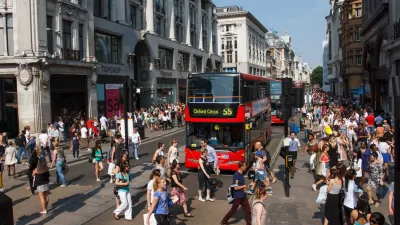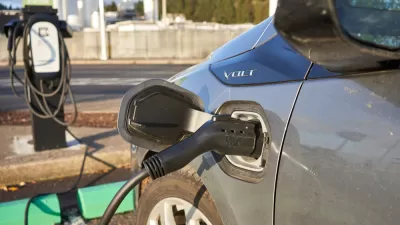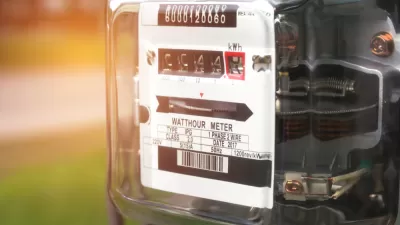To show his company's commitment to becoming carbon neutral by 2040, Jeff Bezos announced Thursday that Amazon would purchase 100,000 battery-electric delivery vans from Michigan-based Rivian. The trucks will begin service in 2021.
"The billionaire announced plans Sept. 19 to buy 100,000 electric vans from Rivian, custom-built for Prime deliveries, as part of an Amazon environmental initiative designed to meet the goals of the Paris climate accord 10 years early," report Chester Dawson and Keith Naughton of
- the Paris climate agreement calls for achieving carbon neutrality by 2050.]
Timing of announcement
The Sept. 19 announcement, made at the National Press Club in Washington, D.C., came a day before the youth-led Global Climate Strike. Also participating in the Friday event were "hundreds of Amazon employees from Amazon's Seattle headquarters, as did contingents from Amazon offices in Los Angeles, San Francisco, New York, Toronto, Dublin and other cities," reports James F. Peltz for the Los Angeles Times.
The group leading the Amazon walkout — Amazon Employees for Climate Justice — has spent this year urging Chief Executive Jeff Bezos and the rest of senior management to take more urgent steps, and the workers’ efforts are a key reason Amazon’s overall environmental footprint increasingly is coming under scrutiny.
On Monday, the UN Climate Action Summit 2019 convenes in New York. UN Secretary General António Guterres has told reporters that the summit is an opportunity to recognize the countries that are ahead of the curve and pressure other ones lagging behind," reports Umair Irfan, who covers climate change, energy, and the environment for Vox.
“Don’t come to the summit with beautiful speeches,” Guterres said at a press conference last month. “Come with concrete plans ... and strategies for carbon neutrality by 2050.”
FULL STORY: Rivian is For Real: Amazon Plans 100,000-Vehicle Order

Maui's Vacation Rental Debate Turns Ugly
Verbal attacks, misinformation campaigns and fistfights plague a high-stakes debate to convert thousands of vacation rentals into long-term housing.

Planetizen Federal Action Tracker
A weekly monitor of how Trump’s orders and actions are impacting planners and planning in America.

In Urban Planning, AI Prompting Could be the New Design Thinking
Creativity has long been key to great urban design. What if we see AI as our new creative partner?

King County Supportive Housing Program Offers Hope for Unhoused Residents
The county is taking a ‘Housing First’ approach that prioritizes getting people into housing, then offering wraparound supportive services.

Researchers Use AI to Get Clearer Picture of US Housing
Analysts are using artificial intelligence to supercharge their research by allowing them to comb through data faster. Though these AI tools can be error prone, they save time and housing researchers are optimistic about the future.

Making Shared Micromobility More Inclusive
Cities and shared mobility system operators can do more to include people with disabilities in planning and operations, per a new report.
Urban Design for Planners 1: Software Tools
This six-course series explores essential urban design concepts using open source software and equips planners with the tools they need to participate fully in the urban design process.
Planning for Universal Design
Learn the tools for implementing Universal Design in planning regulations.
planning NEXT
Appalachian Highlands Housing Partners
Mpact (founded as Rail~Volution)
City of Camden Redevelopment Agency
City of Astoria
City of Portland
City of Laramie





























